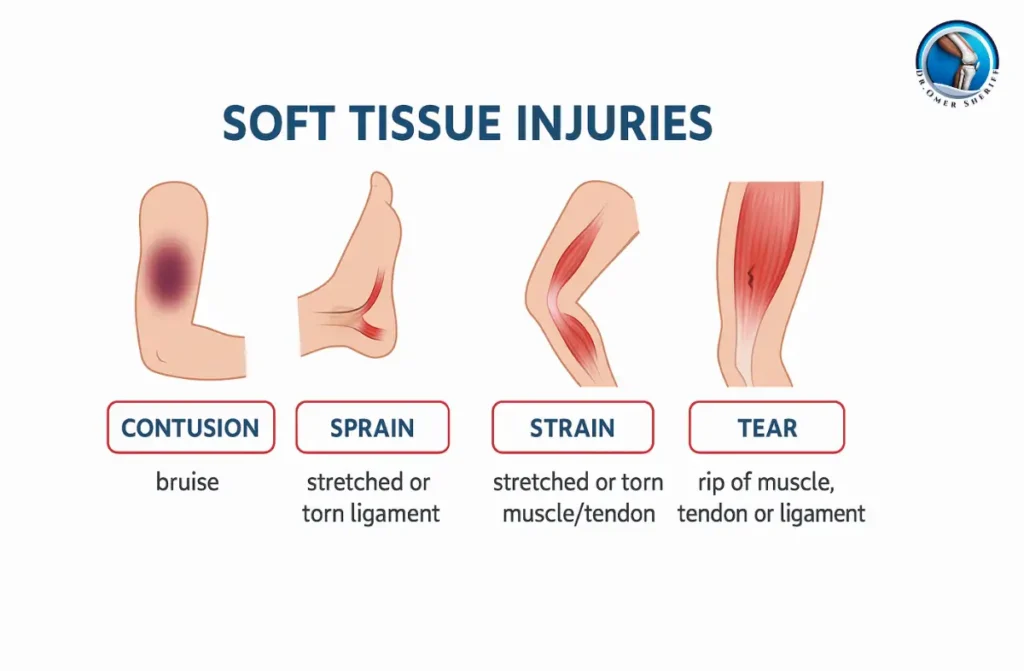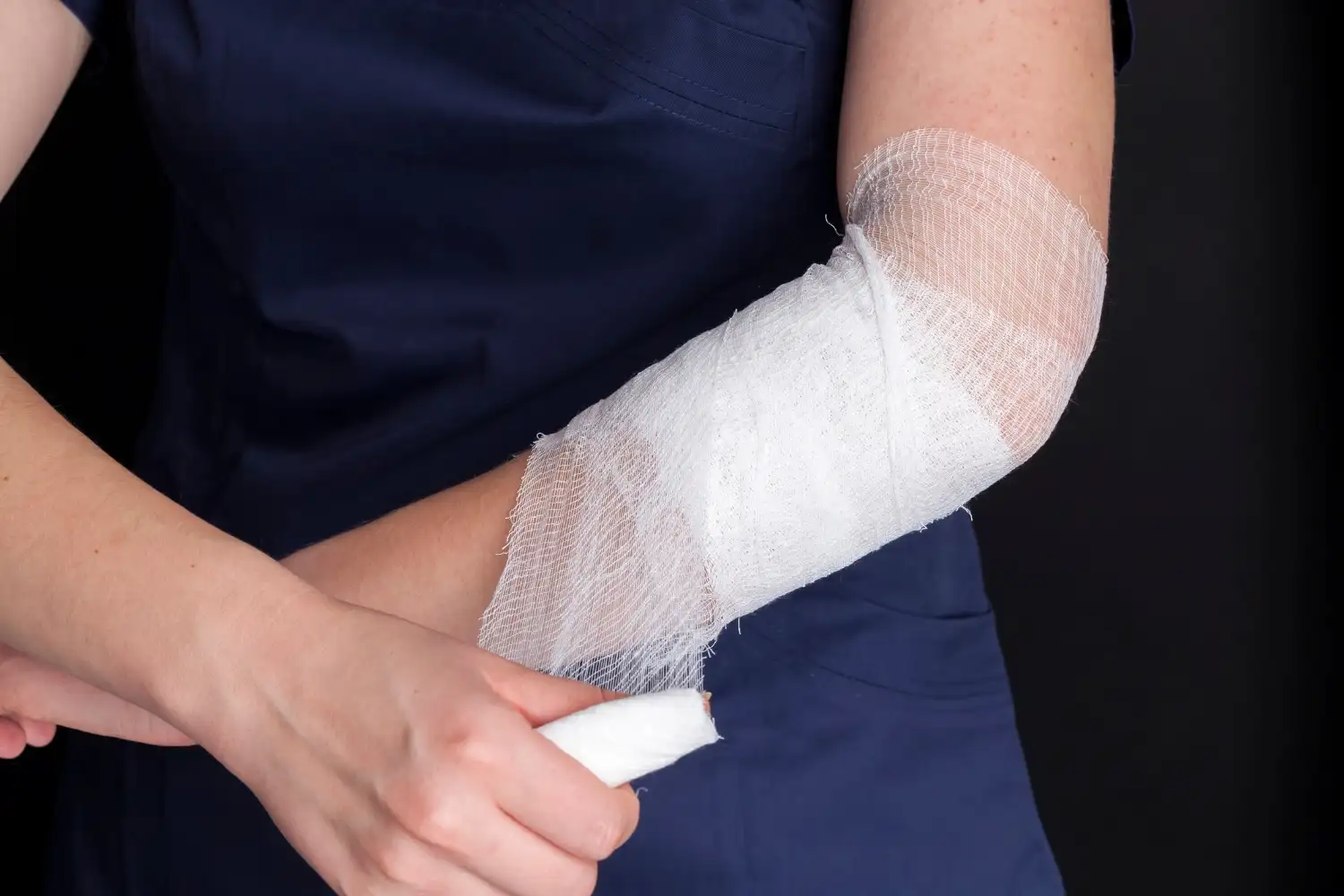Soft Tissue Injuries treatment in Chennai involve damage to muscles, tendons, or ligaments caused by accidents, overuse, or routine activities. Prompt diagnosis and proper care are essential for quick recovery and preventing long-term complications.
Soft Tissue Injuries treatment in Chennai can affect individuals of all ages and activity levels, impacting key components of the body’s movement system muscles, tendons, and ligaments. These knee soft tissue injury often result from sudden impacts, repetitive motions, or physical overexertion. They can range from mild sprains to severe tears, leading to reduced mobility and discomfort. Whether you’re an athlete or someone with a busy lifestyle, recognizing and addressing soft tissue injuries early is essential for maintaining long-term health and an active quality of life.
Types of Soft Tissue Injuries
- Sprains: Overstretching or tearing of ligaments, common in ankles, knees, and wrists.
- Strains: Injuries to muscles or tendons, often in the lower back, hamstrings, or shoulders.
- Contusions (Bruises): Result from a direct blow causing blood vessels to break under the skin.
- Tendinitis: Inflammation of tendons, usually from overuse, common in the shoulders, elbows, and knees.
- Bursitis: Inflammation of fluid-filled sacs that cushion bones, often due to repetitive movements.
Soft tissue injuries treatment in chennai are particularly common in those who are active in sports or physical activities. A knee soft tissue injury can vary from a mild sprain to a serious ligament tear, requiring careful management to ensure proper healing.

Causes of Soft Tissue Injuries
- Acute Trauma: Sudden impacts, falls, or collisions.
- Overuse: Repetitive motion or overexertion.
- Poor Conditioning: Lack of strength or flexibility.
- Improper Technique: Incorrect form during physical activities.
Diagnosis and Treatment
Accurate diagnosis and treatment are essential for managing soft tissue injuries treatment in chennai. This starts with a thorough examination and may include imaging tests to understand the extent of the injury, here the best treatment provided for Soft Tissue Injuries treatment in chennai.
Steps in Diagnosing Soft Tissue Injuries
- Clinical Evaluation:
- History of how the injury occurred.
- Examination for swelling, bruising, and pain.
- Assessment of movement and strength.
- Imaging Studies:
- X-rays: To rule out bone fractures.
- MRI: To view detailed images of muscles, tendons, and ligaments.
- Ultrasound: Helpful in detecting tendinitis or bursitis.
Treatment Options:
- RICE Method: Rest, Ice, Compression, and Elevation help reduce pain and swelling.
- Medication: Pain relievers like ibuprofen can reduce pain and inflammation.
- Physical Therapy: Exercises to restore strength, flexibility, and movement.
- Injections: Corticosteroids to reduce inflammation in severe cases.
- Surgery: Needed for severe injuries like complete ligament tears.
For a soft tissue knee injury treatment in kolathur, following a personalized plan is crucial. Early and appropriateSoft Tissue Injuries treatment in chennai can lead to better outcomes and prevent chronic pain.
Physical Therapy Options
Physical therapy Treatment plays a vital role in the recovery process. It helps patients regain strength, flexibility, and confidence in their movements.
Goals of Physical Therapy:
- Pain Relief: Techniques like ice or heat therapy reduce pain and inflammation.
- Improved Mobility: Stretching and manual therapy help restore movement.
- Strength Building: Focuses on rebuilding muscle strength around the injury.
- Injury Prevention: Teaches proper movement patterns to avoid re-injury.
Physical Therapy for Knee Soft Tissue Injuries:
- Strengthening Exercises: Target muscles around the knee to support recovery.
- Flexibility Training: Maintain or improve knee joint flexibility.
- Proprioception Exercises: Enhance balance and stability.
Conclusion
Effective management of Soft Tissue Injuries treatment in Chennai is essential for recovery and preventing future complications. Whether it’s a mild sprain or a serious ligament tear, timely diagnosis, personalized treatment, and consistent care play a crucial role in restoring movement and living pain-free. Collaborating with experienced healthcare professionals ensures that soft tissue knee injury treatment in kolathur the best outcomes and supports a healthy, active lifestyle.


